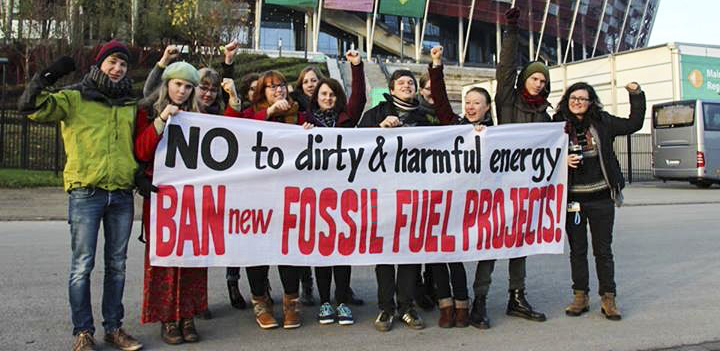A leaked European Union document published today by the Washington Post exposes the dangerous direction the trade deal between the U.S. and the EU is taking when it comes to raw material and energy.
The leaked position paper reveals that the proposed trade deal – the Transatlantic Trade and Investment Partnership, or TTIP – could change U.S. energy policy to allow for increased exports of oil and gas and keep the EU dependent on high levels of fossil fuel imports. The document is attracting ire from environmental groups in the U.S. and in Europe which say the proposal would be a disaster for the climate.
“This leaked proposal further confirms our concerns that, while the public is being kept in the dark, the EU-US trade deal is being used to trade away regulations that protect us from dangerous climate change,” said Natacha Cingotti, corporate campaigner for Friends of the Earth Europe. “Europe needs to end its high import dependency and make an urgent transition to clean, renewable energy and greater energy efficiency.”
The document states that the EU is seeking “a legally binding commitment” that would “transform” the current U.S. process for examining the impacts of natural gas and crude oil exports into a process whereby “licenses for exports to the EU are granted automatically and expeditiously”.
“If there is one thing that the EU gets right in this proposal, it is that EU and U.S. companies would be “first beneficiaries,’” said Peter Fuchs, executive director of Germany-based PowerShift. “The oil and gas industry, which under the EU proposal would be granted the right to sell U.S. fracked gas and oil to the EU with no review or delay, is the real winner in this proposal; communities and our environment will suffer the losses.”
“The EU proposal is climate denial, pure and simple,” said Steve Kretzmann, Executive Director of Oil Change International. “At a time when science is crystal clear that we need to leave most proven fossil fuel reserves in the ground, anything that makes further exploration and development more profitable – like this EU proposal – is totally irresponsible.”
Environmental groups are also concerned that the EU is prioritizing access to U.S. fossil fuels instead of maximizing the potential of renewables and efficiency, despite having set targets to reduce climate emissions by 2020.
“The U.S.-EU trade pact provides the European Union with a back-door to manipulate U.S. energy policy without public scrutiny,” said Ilana Solomon, director of the Sierra Club’s Responsible Trade Program. “The EU wants a free pass to import dirty fossil fuels from the U.S. — a run-around U.S. law that would result in more dangerous fracking for oil and gas in our backyards and more climate-disrupting pollution globally.”
“If U.S. trade officials do only one thing at the negotiating table next week, they should reject this proposal,” Solomon said.






